-
Reservoirs in Parched Chennai, City of Millions, Are Dry. Can Better Forecasting Avert Future Crises?
›
Residents of Chennai, by all accounts, are miserable and anxious. The city’s main reservoirs are dry, depleted by the failure of successive monsoons to provide replenishing rains. The shortfall has crippled the piped distribution network, which is now meeting just half of typical demand through a mix of secondary sources: desalinated water, groundwater, and the impoundments from nearby stone quarries. Even that supply is far from adequate. Piped water reaches households once a week or less. Tanker trucks, an expensive alternative, dole out water by the bucketful to desperate crowds.
-
Partnerships, Politics, & Plastic Pollution: A Conversation with Rob Kaplan on Reducing Ocean Plastics
› “I’ve never seen this kind of political and public sector engagement in an environmental topic happen so fast,” said Rob Kaplan, the Founder and CEO of Circulate Capital in an interview with Ambassador David Balton following a recent Wilson Center event on reducing marine plastic pollution. Interest in reducing ocean plastics has gone from a blip on the radar at ocean conferences to “now becoming a top priority,” said Kaplan.
“I’ve never seen this kind of political and public sector engagement in an environmental topic happen so fast,” said Rob Kaplan, the Founder and CEO of Circulate Capital in an interview with Ambassador David Balton following a recent Wilson Center event on reducing marine plastic pollution. Interest in reducing ocean plastics has gone from a blip on the radar at ocean conferences to “now becoming a top priority,” said Kaplan. -
Inclusive Protection of Civilians During Conflicts: Making a Case for the Environment
›
It is important to take an inclusive and tangible approach to protecting civilians by protecting the environment during armed conflicts. In recent decades, the link between conflict, the environment and the protection of civilians has become painstakingly clear. From Iraq to Ukraine, Libya to Yemen, dozens of incidents have surfaced where environmental damage resulting from conflict has led to acute or chronic health risks to civilians and their communities, undermining their socioeconomic development.
-
Urban Elites’ Livestock Exacerbate Herder-Farmer Tensions in Africa’s Sudano-Sahel
› In recent years, conflict between herders and farmers for access to increasingly scarce natural resources in Africa’s Sudano-Sahel has escalated. While the problems fueling these tensions are both hyper-local and transnational in nature, one important piece of the puzzle has been overlooked. The real “elephant in the room” is who owns the livestock.
In recent years, conflict between herders and farmers for access to increasingly scarce natural resources in Africa’s Sudano-Sahel has escalated. While the problems fueling these tensions are both hyper-local and transnational in nature, one important piece of the puzzle has been overlooked. The real “elephant in the room” is who owns the livestock. -
Weathering the Storm: Wastewater Resiliency in the US and China
›
In 2018, floods resulted in over 20 casualties and billions of yuan in damage in China, with the government issuing 835 flood warnings nationwide. As global temperatures rise, the combination of extreme weather events and sea level rise threaten the basic infrastructure and water security of low-elevation Chinese cities. Coastal residents account for 43% of China’s population – approximately 170 million citizens live less than ten meters above sea level. In fact, seven of China’s ten largest cities are on the coast, creating high stakes for the government to address impending threats of flooding and sea level rise. Shanghai, China’s largest city, is on the frontlines of climate change as one of the world’s most flood-vulnerable major cities. Shanghai’s government was eager to invest in the sponge city initiative and expand greenspace, rooftop gardens and porous pavements to control stormwater floods. However, officials have been hesitant to invest in climate adaptation measures that don’t create a big splash, like the unglamorous networks of sewage and wastewater infrastructure.
-
Middle East: EcoPeace Urges UN to Back Water-Energy Cooperation to Increase Security
›
“Action is needed today,” said EcoPeace Middle East’s Palestinian Co-Director Nada Majdalani. EcoPeace’s Palestinian and Israeli Co-Directors spoke at a recent session of the United Nations Security Council that focused on potential solutions to the decades-old Palestinian-Israeli crisis. They emphasized the importance of cooperation over shared water resources to help address human health and national, regional, and global security concerns. While EcoPeace has been working to foster cooperation over water for more than 25 years, as a way to build peace in the Middle East, this was the first time the trilateral organization briefed the Security Council.
-
Water as a Tool for Resilience in Times of Crisis
›
Water serves as a tool for resilience only when access to it is consistent and the system for making it consistent is in place, said David De Armey, Director of International Partnerships for Water for Good, an international NGO. He spoke at a recent Wilson Center event, “Water as a Tool for Resilience in Times of Crisis,” the second event in a three-part series, Water Security for a Resilient World, sponsored by the Wilson Center, Winrock International, the Sustainable Water Partnership, and USAID. Water for Good monitors 80 percent of wells across seven provinces in Central African Republic (CAR), he said. By keeping the water infrastructure working, the nonprofit creates a stable environment within an unstable country. “Thus,” he said, “we see reliability and services as a tool for resilience.”
-
Environmental Security Risks: How to Plan for Disasters in the Face of Uncertainty
› How do we plan for disasters that have never occurred before? One million species are at risk of extinction in the near future from environmental changes. The frequency of historic tropical storms is increasing. The rapidly melting permafrost in the Arctic is placing unprecedented pressures on northern infrastructure. Given the overwhelming and unpredictable nature of new disaster risks, it is not clear what the appropriate responses should be. Our book, Disaster Security: Using Military and Intelligence Planning for Energy and Environmental Risks, addresses how to assess unique environmental hazards and disaster risks, based on tools used by the U.S. intelligence and military communities. The book draws on lessons learned from developing, applying, and translating scenarios and simulations (or wargames) to plan for future environmental security risks.
How do we plan for disasters that have never occurred before? One million species are at risk of extinction in the near future from environmental changes. The frequency of historic tropical storms is increasing. The rapidly melting permafrost in the Arctic is placing unprecedented pressures on northern infrastructure. Given the overwhelming and unpredictable nature of new disaster risks, it is not clear what the appropriate responses should be. Our book, Disaster Security: Using Military and Intelligence Planning for Energy and Environmental Risks, addresses how to assess unique environmental hazards and disaster risks, based on tools used by the U.S. intelligence and military communities. The book draws on lessons learned from developing, applying, and translating scenarios and simulations (or wargames) to plan for future environmental security risks.
Showing posts from category environment.


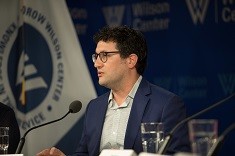 “I’ve never seen this kind of political and public sector engagement in an environmental topic happen so fast,” said Rob Kaplan, the Founder and CEO of Circulate Capital in an interview with Ambassador David Balton following a recent
“I’ve never seen this kind of political and public sector engagement in an environmental topic happen so fast,” said Rob Kaplan, the Founder and CEO of Circulate Capital in an interview with Ambassador David Balton following a recent 
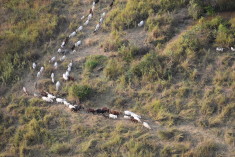 In recent years, conflict between herders and farmers for access to increasingly scarce natural resources in Africa’s Sudano-Sahel has escalated. While the problems fueling these tensions are both hyper-local and transnational in nature, one important piece of the puzzle has been overlooked. The real “elephant in the room” is who owns the livestock.
In recent years, conflict between herders and farmers for access to increasingly scarce natural resources in Africa’s Sudano-Sahel has escalated. While the problems fueling these tensions are both hyper-local and transnational in nature, one important piece of the puzzle has been overlooked. The real “elephant in the room” is who owns the livestock.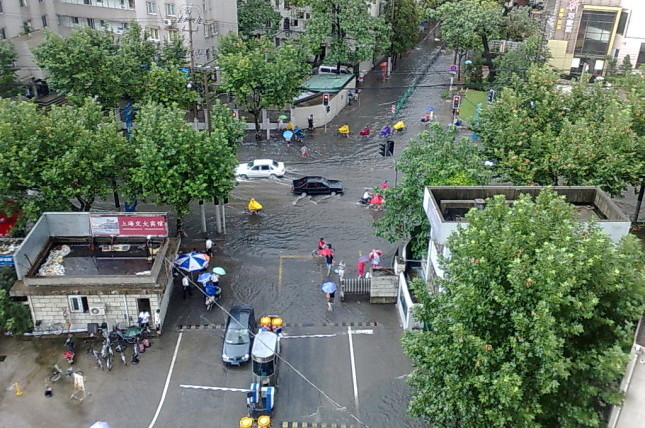
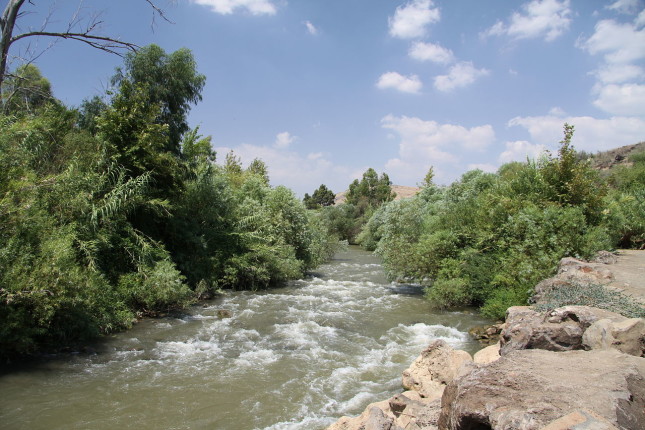

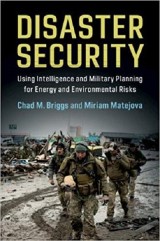 How do we plan for disasters that have never occurred before?
How do we plan for disasters that have never occurred before? 

